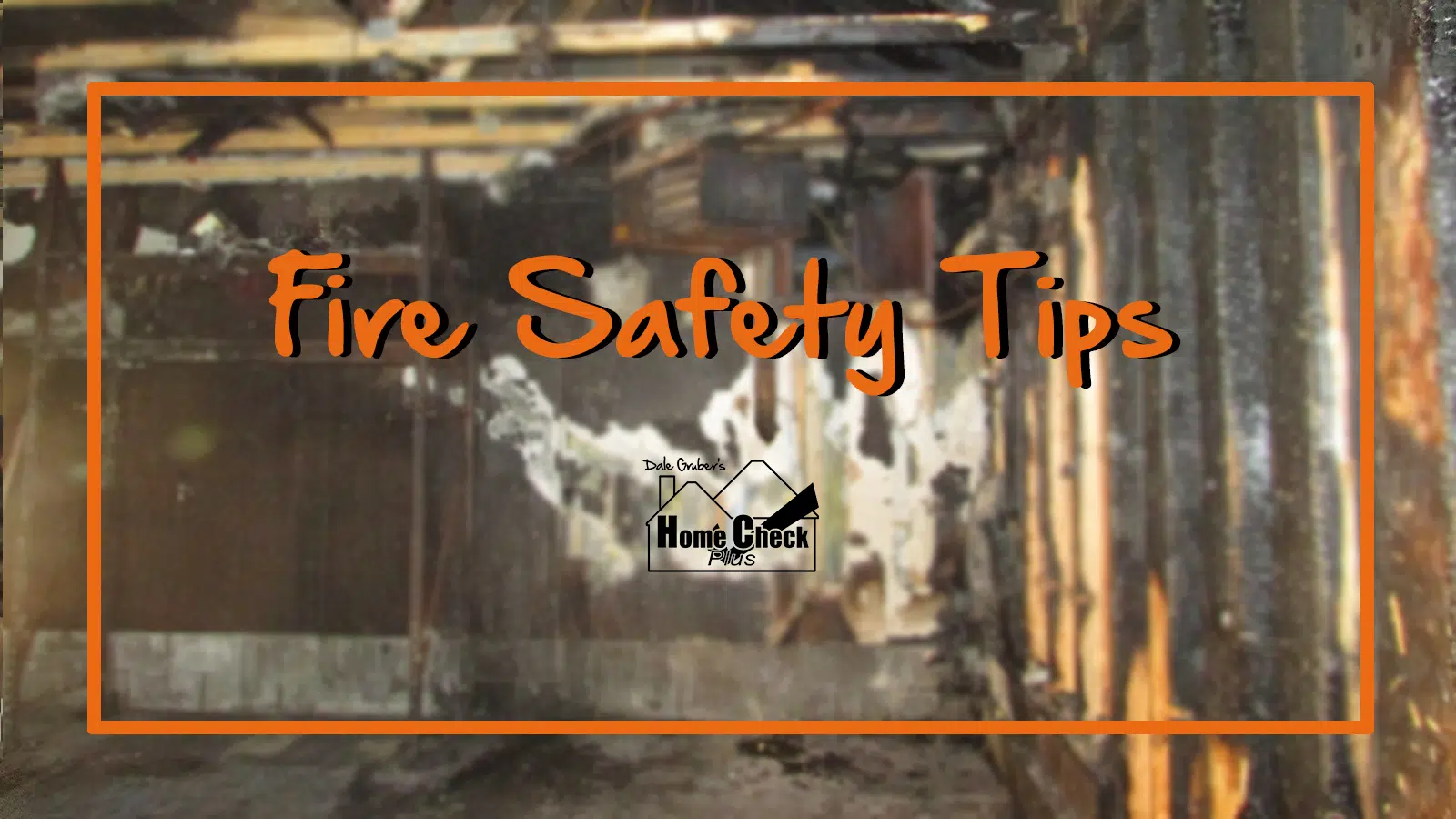October 6th to October 12th marks Fire Prevention Week. Check out these fire safety tips.
Smoke Alarms
Working smoke alarms give you early warnings and are a key part of a home fire escape plan.
- Install smoke alarms in every bedroom. They should also be outside each sleeping area and on every level of the home.
- Large homes may need extra smoke alarms.
- It is best to use interconnected smoke alarms. When one smoke alarm sounds, they all sound.
- Test all smoke alarms at least once a month. Press the test button to be sure the alarm is working.
- Current alarms on the market employ different types of technology including multi-sensing, which could include smoke and carbon monoxide combined.
- A smoke alarm should be on the ceiling or high on a wall. Keep smoke alarms away from the kitchen to reduce false alarms. They should be at least 10 feet from the stove.
- People who are hard-of-hearing or deaf can use special alarms. These alarms have strobe lights and bed shakers.
- Replace all smoke alarms when they are 10 years old or as per manufacturer’s recommendations.
Heating Safety
Heating equipment is one of the leading causes of home fire deaths. With a few simple safety tips and precautions, you can prevent most heating fires from happening.
- Keep anything that can burn at least three feet away from heating equipment like the furnace, fireplace, wood stove or portable space heater.
- Have a three foot “kid-free zone” around open fires and space heaters.
- Never use your oven to heat your home.
- Have a qualified professional install stationary space heating equipment, water heaters or central heating equipment according to the local codes and manufacturer’s instructions.
- Have heating equipment and chimneys cleaned and inspected every year by a qualified professional.
- Remember to turn portable heaters off when leaving the room or going to bed.
- Always use the right kind of fuel, specified by the manufacturer, for fuel burning space heaters.
- Make sure the fireplace has a sturdy screen to stop sparks from flying into the room. Ashes should be cool before putting them in a metal container. Keep the container a safe distance away from your home.
- Test smoke alarms at least once a month.
Cooking Safety
Did you know cooking fires are the number one cause of home fires and home injuries? Check out these tips.
- Be on alert! If you are sleepy or have consumed alcohol don’t use the stove or stovetop.
- Stay in the kitchen while you are frying, boiling, grilling or broiling food. If you leave the kitchen for even a short period of time, turn off the stove.
- If you are simmering, baking or roasting food, check it regularly, remain in the home while food is cooking and use a timer to remind you that you are cooking.
- Keep anything that can catch fire — oven mitts, wooden utensils, food packaging, towels or curtains –away from your stovetop.
If you have a small (grease) cooking fire and decide to fight the fire…
- On the stovetop, smother the flames by sliding a lid over the pan and turning off the burner. Leave the pan covered until it is completely cooled.
- For an oven fire, turn off the heat and keep the door closed.
Escape Planning
If a fire breaks out in your home, you may have only a few minutes to get out safely once the smoke alarm sounds. Everyone needs to know what to do and where to go if there is a fire.
- Make a home escape plan. Draw a map of your home showing all doors and windows. Discuss the plan with everyone in your home.
- Know at least two ways out of every room, if possible. Make sure all doors and windows leading outside open easily.
- Have an outside meeting place a safe distance from the home where everyone should meet.
- Practice your home fire drill at night and during the day with everyone in your home, twice a year.
- Practice using different ways out.
- Teach children how to escape on their own in case you can’t help them.
- Close doors behind you as you leave.
If the alarm sounds…
- If the smoke alarm sounds, get out and stay out. Never go back inside for people or pets.
- If you have to escape through smoke, get low and go under the smoke to your way out.
- Call the fire department from outside your home.
For more information about Fire Prevention Week, click here.
Source: nfpa.org

